#Louis Agassiz
Explore tagged Tumblr posts
Text
JEAN AGASSIZ Geological Sketches (1870)
The eye of the trilobite tells us that the sun shone on the old beach where he lived; for there is nothing in nature without a purpose, and when so complicated an organ was made to receive the light, there must have been light to enter it.
2 notes
·
View notes
Text

Mourning doves illustrated by Louis Agassiz Fuertes in the book Birds of New York (1910–14) by Elon Howard Eaton.
#Louis Agassiz Fuertes#art#american art#illustration#animals in art#animals#bird#birds#birblr#birds in art#dove#doves#mourning dove#20th century art#20th century#1910s#10s#art history#ornithology#Elon Howard Eaton
669 notes
·
View notes
Text
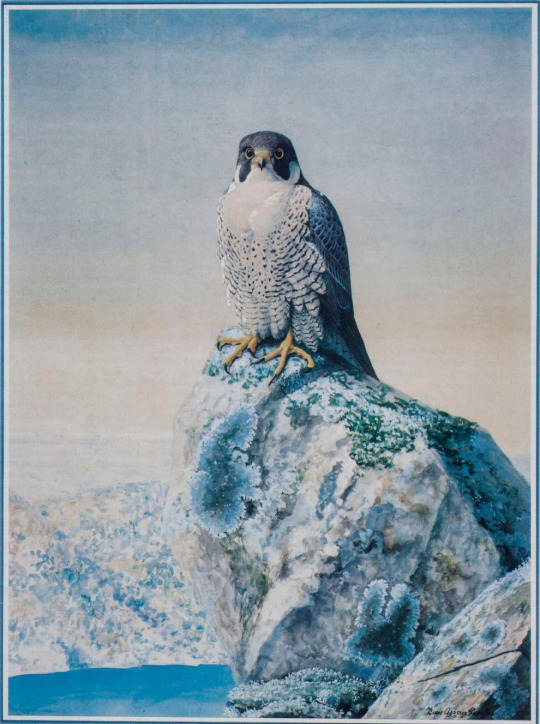
Peregrine falcon (Falco peregrinus) by Louis Agassiz Fuertes. From Terra: The Member's Magazine of The Natural History Museum of Los Angeles County. Volume 22, No. 6. July/August 1984.
Internet Archive
370 notes
·
View notes
Text
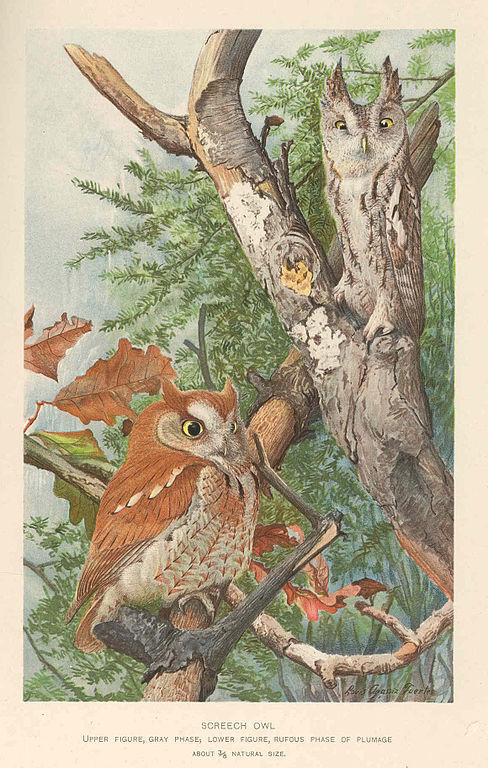
Screech Owl (1902) by Louis Agassiz Fuertes.
New York Fish and Game Commission.
University of Washington
Wikimedia.
81 notes
·
View notes
Text
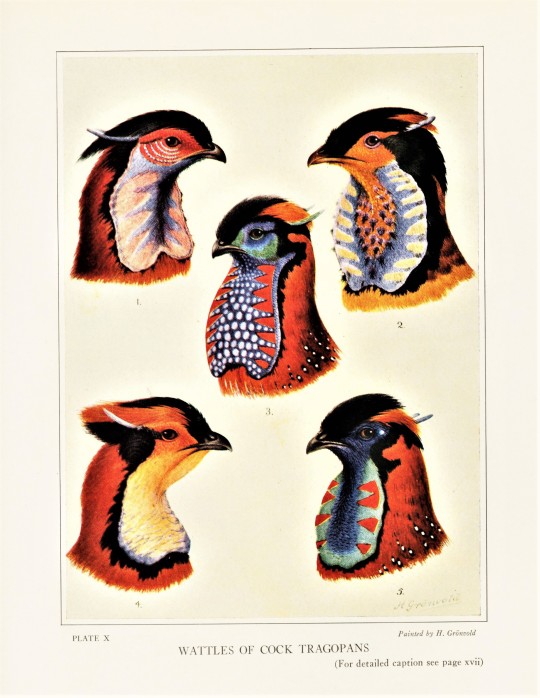


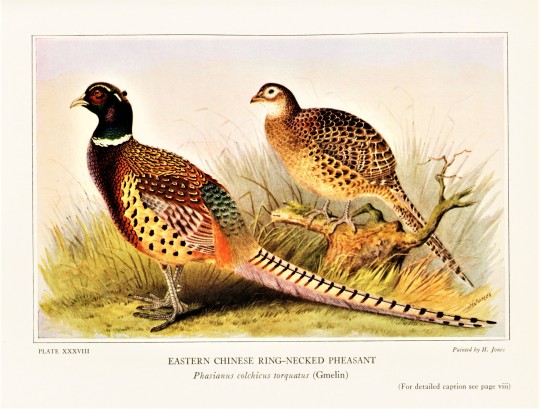
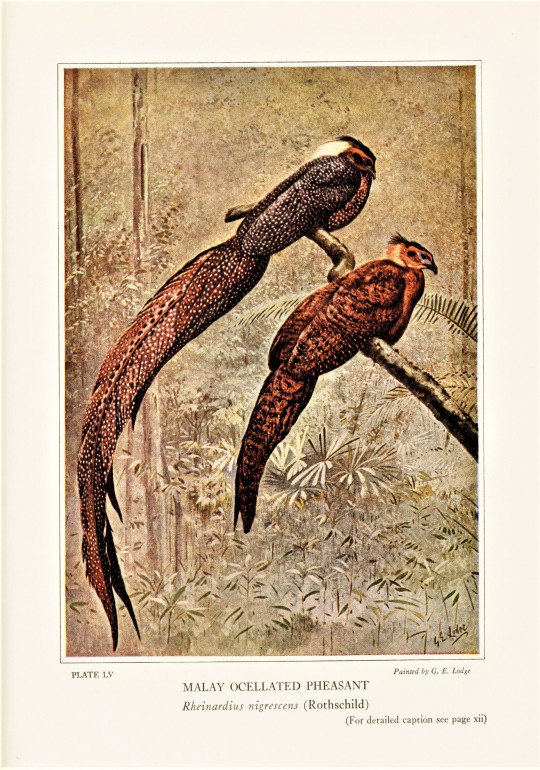
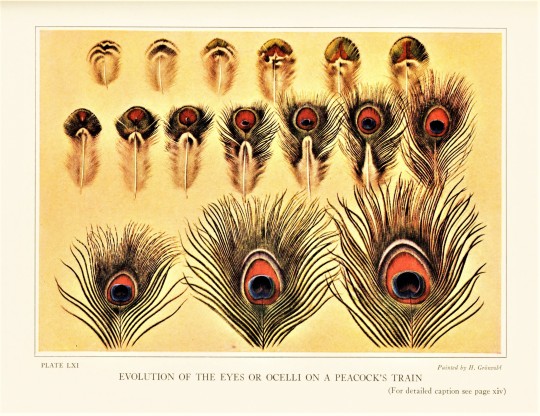



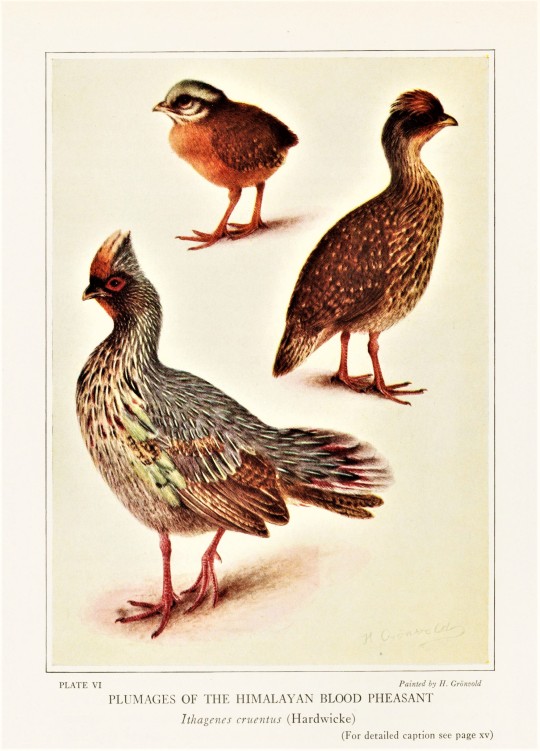
Feathursday Pheasants!
This week we bring you a few Pheasants from around the world as published in the 1936 publication Pheasants Their Lives and Homes by the eminent zoologist and explorer William Beebe, published in Garden City, N.Y. by Doubleday, Duran & Company under the auspices of the New York Zoological Society, where Beebe was director of the Department of Tropical Research.
In 1910, Beebe led a major, 17-month, worldwide expedition for the New York Zoological Society to document the world's pheasants. "The urgency of this journey sprang from the fact that the members of this most beautiful and remarkable group of birds are rapidly becoming extinct, so that the record of their habits and surroundings, which is important to understanding their structure and evolution, will soon be lost forever."
The resulting publication was the 4-volume A Monograph of the Pheasants, published in London by H. F. Witherby for the New York Zoological Society, 1918-1922. The abridged version, Pheasants Their Lives and Homes, first came out in 1926. This is the 1936 edition. The images shown here are by naturalist artists Louis Agassiz Fuertes, Henrik Grønvold, Henry Jones, Charles R. Knight, and George Edward Lodge.
View more posts with pheasants.
View more Feathursday posts.
#feathursday#pheasants#Pheasants Their Lives and Homes#William Beebe#Doubleday#Duran & Company#New York Zoological Society#bird paintings#scientific illustrations#Louis Agassiz Fuertes#Henrik Grønvold#Henry Jones#Charles R. Knight#George Edward Lodge#wildlife artists#birds#birbs!
127 notes
·
View notes
Text
More for #LoveHornbillsDay:
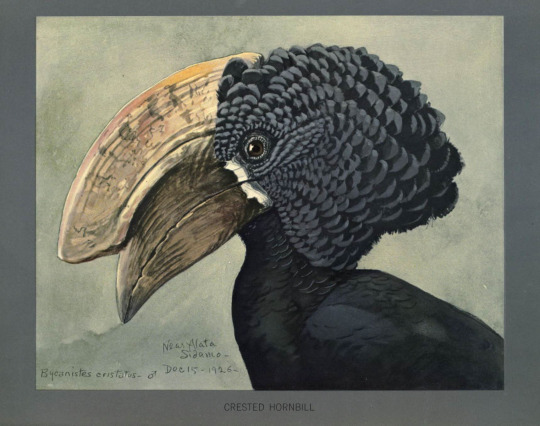
"Crested Hornbill" now known as the Silvery-Cheeked Hornbill (Bycanistes brevis)
painted in 1926 by Louis Agassiz Fuertes (1874-1927), reproduced in Album of Abyssinian Birds and Mammals (1930) by the Field Museum. Via BHL.
#animals in art#animal holiday#20th century art#birds in art#illustration#bird#birds#1920s#Louis Agassiz Fuertes#Field Museum#hornbill#Silvery-Cheeked Hornbill#ornithology#ornithological illustration#scientific illustration#natural history art#painting#lithograph#Album of Abyssinian Birds and Mammals#Love Hornbills Day#BHL#Biodiversity Heritage Library
17 notes
·
View notes
Text
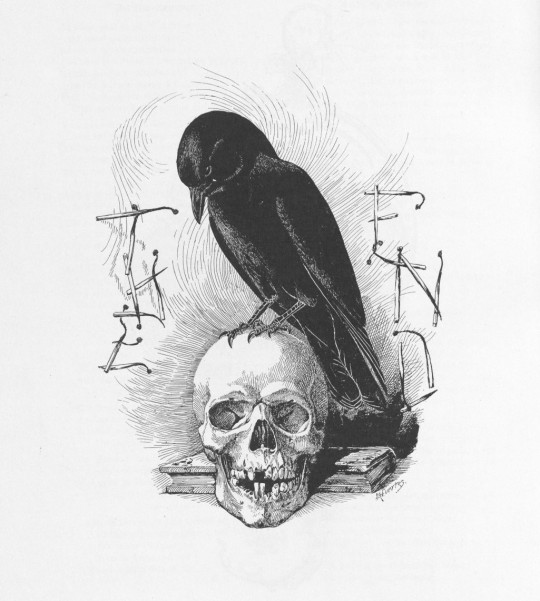
Louis Agassiz Fuertes - The Raven and Skulls. Final page in 'The Cornellian' (magazine) of 1896.
20 notes
·
View notes
Text

Bahama Duck, Galapagos Island Duck, African Red-Billed Duck (1922-1926) | Louis Agassiz Fuertes | A natural history of the ducks v.2
#louis agassiz fuertes#anas bahamensis#anatidae#ducks#duck art#bird art#vintage illustration#illustration
18 notes
·
View notes
Text
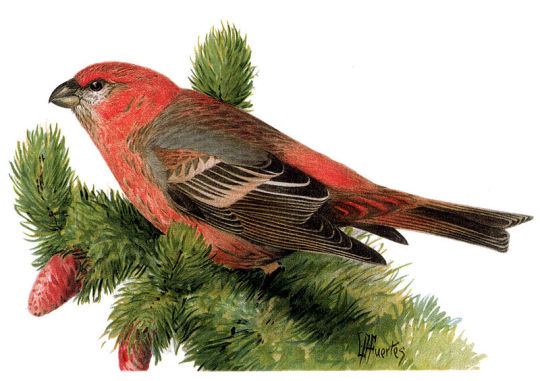
Pine Grosbeak. Fuertes. This is an early Fuertes and I think if you remember that at the time he would have painted it, presumably sometime within the first decade of so of the 20th century, there was really on artist doing realistic paintings of birds in North America, you can understand the support he quickly had from the ornithological community. And unlike Brooks, Fuertes was well positioned geographically, being located near Cornell University, and close to the epicentre of natural history science of that era. It’s a translucent watercolour, very “field-guide-ish” with neutral lighting and simplified environment.
art by louis agassiz fuertes
text by barry kent mackay
support barry kent mackay on ko-fi
23 notes
·
View notes
Text

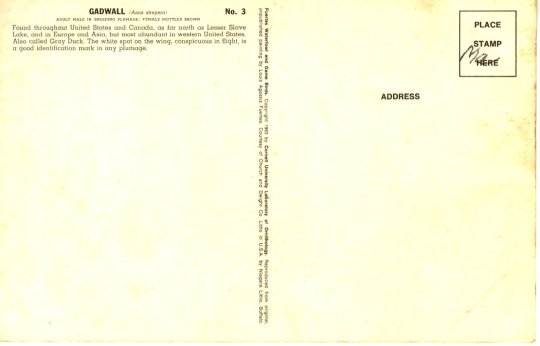
Gadwall
(Anas Strepera) Adult male in breeding plumage; female mottled brown
Found throughout United States and Canada, as far north as Lesser Slave Lake, and in Europe and Asia, but most abundant in western United States. Also called Gray Duck. The white spot on the wing, conspicuous in flight, is a good identification mark in any plumage.
No. 3 Fuertes Waterfowl and Game Birds. copyright 1963 by Cornell University Laboratory of Ornithology. Reproduced from original, unpublished painting by Louis Agassiz Fuertes. Courtesy of Church and Dwight Co. Litho in U.S.A. by Niagara Litho, Buffalo.
#postcard#postcardaday#ducks#gadwall#gray duck#Louis Agassiz Fuertes#lithograph#1960s#1963#midcentury#midcentury postcards
0 notes
Photo
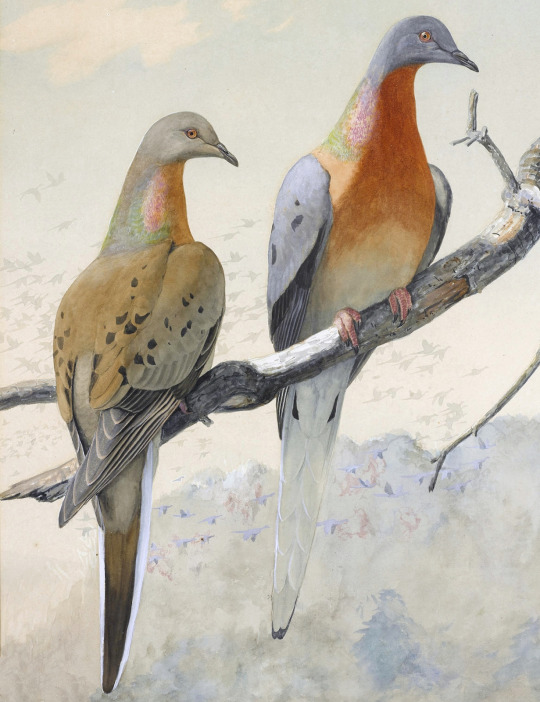
A pair of passenger pigeons - Louis Agassiz Fuertes - 1907 - via Bonham’s
2K notes
·
View notes
Text



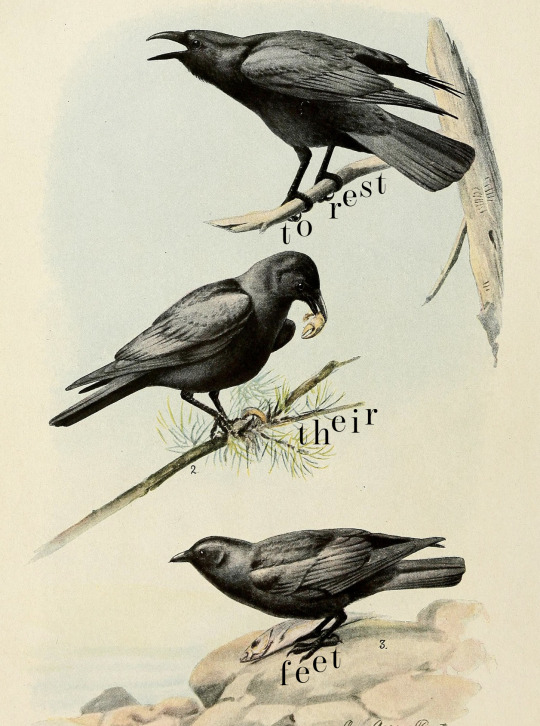
Corvus cornix, corvus corone, and corvus frugilegus in British Birds – Archibald Thorburn // Corvus albicollis and corvus corax in Bird Lore – Louis Agassiz Fuertes // Pica pica, corvus corax, and coloeus monedula in British Birds – Archibald Thorburn // Corvus ossifragus, corvus brachyrhynchos, and corvus brachyrhynchos caurinus in Bird Lore – Louis Agassiz Fuertes // Marbles – The Amazing Devil
#this is one of the sweetest most heartfelt love songs of all time and you cannot change my mind#birds#carrion crows#crow#crows#corvid#corvids#marbles#marbles song#marbles the amazing devil#marbles tad#the horror and the wild#the amazing devil#tad#the amazing devil lyrics#madeleine hyland#joey batey#art#art history#lyrics#lyric art
498 notes
·
View notes
Text

"Longbill the Woodcock", illustration by Louis Agassiz Fuertes from The Burgess Bird Book for Children (1919) by Thornton W. Burgess.
#Louis Agassiz Fuertes#art#american art#illustration#illustrations#children illustration#animals in art#animals#bird#birds#birblr#birds in art#woodcock#american woodcock#20th century art#20th century#1910s#10s#art history#ornithology
146 notes
·
View notes
Text

Louis Agassiz Fuertes, 1916
126 notes
·
View notes
Photo
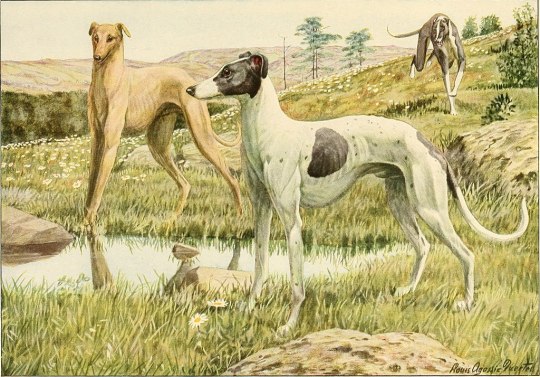
Illustration by Louis Agassiz Fuertes of greyhounds taken from ‘The Book of Dogs’ (1919).
The National Geographic Society.
Smithsonian Libraries.
Wikimedia.
47 notes
·
View notes
